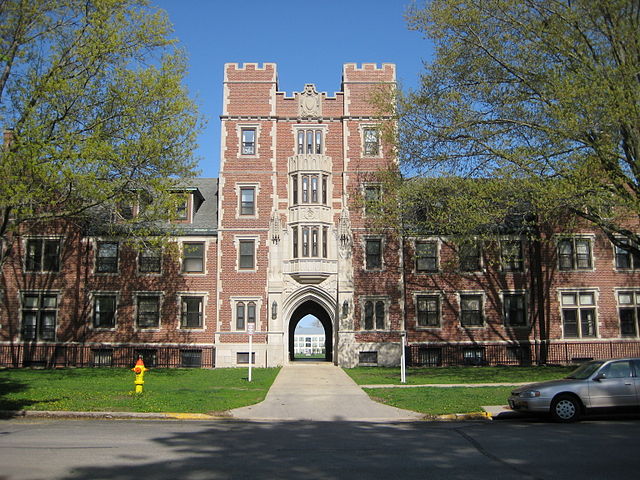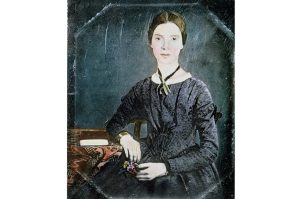The crisis in American higher ed
It’s not quite right to say that American higher ed is in crisis. It does a lot of things very well and has, as Nick Burns points out in his history of the institution, a huge influence not just on American culture (for better and worse) but also the American economy:
Expanding at breakneck speed after the Second World War, the American university has transformed from an institution accessible only to a small elite to the site of personal, professional, and political formation for vast swaths of the middle classes. Bachelor’s degree recipients made up just 5 percent of the U.S. adult population in 1940. This figure doubled by 1970, doubled again to 20 percent by 1990, and has risen to 40 percent as of 2019 to make up practically all those involved in managerial work outside the domain of the family business.
The American university now serves as hedge fund operator, real estate developer, start-up incubator, and the largest employer in two-thirds of the country’s largest one hundred cities. It also plays a highly conspicuous role in political, social, and cultural life. The revolution in American higher education has been emulated across the world—for example in Britain, where a much more top-down system was built out from the 1940s without prejudice to the special privileges of the elite-forming ancient universities; or in China, where 1,200 universities have been founded over the past two decades.
The approach to power and truth that one finds in Marx and post-structuralism, of course, took the American university by storm, which has given us what we call “wokeness” and “cancel culture.” But Burns wonders if the structure of the American university itself isn’t at least partly to blame for these strange ideas:
The university mindset—which is far broader than the political ideology that is most prominent inside its walls—generates characteristic anxieties in the young men and women who are formed in it. These anxieties only become more pronounced as graduates must live their adult lives outside the university’s walls in a society decidedly capitalist in its organization and liberal in its principles. This phenomenon deserves consideration as an important cause of the present deformations in our political and moral culture.
Mark Bauerlein argues in The Dumbest Generation Grows Up that direct indoctrination by faculty is not the real problem at university. It is the abdication of teaching something worth learning. “When I first saw Bauerlein’s book title,” Stanley Kurtz writes in his review of the book, “I thought ‘editor in search of sales chooses simplistic title for serious book.’” But Bauerlein has something important to say:
Bauerlein doesn’t focus on leftist indoctrination as a source of the new woke sensibility. In fact, he plays down the importance of intentional politicization… Bauerlein explains the left-utopianism of young Americans more by what they are not learning than by what they’re actually taught. I don’t mean that he highlights the lack of traditional American history or civics — although that does concern him. Instead, he explains that it’s the loss of great literature — or even not-so-great literature and film that is nevertheless rich and serious about human motivation — that has made many Millennials shallow. Social media has drawn young people away from serious reading, and in general has dumbed down the culture. In the absence of the literature, religion, music, and art that once conveyed the range, depth, tragedy, and complexity of life, says Bauerlein, young people become susceptible to utopian illusions. What illusions? Well, the illusion that everyone can be happy, for example, or that people are either wholly innocent or guilty, or that the world can be made whole by casting the guilty out.
Peter Lawler, for his part, was one of the first to note that the problem with the American university is not faculty but administrators. James Patterson revisits Lawler’s American Heresies and Higher Education in the latest installment of Public Discourse’s online symposium on Lawler’s work:
As his book title indicates, Peter was a heretic among conservatives on matters of higher education. When he wrote it, conservatives like Andy Kessler and Mona Charen and libertarians like Tyler Cowen and Alex Tabarrok advocated the view that higher education was a cartel that needed to be broken up in favor of scalable massively open online courses (MOOCs). These MOOCs would be taught by the best instructors and would bypass legacy “brick-and-mortar” institutions. Peter thought this view misunderstood both human nature and the nature of education. As one finds throughout his work, Peter believed humans to be relational, meaning that they found purpose only in families, communities, and institutions, including liberal arts colleges like Berry College, where he had been a fixture on the faculty. To “scale” classes in liberal arts was to render them impersonal, thus depriving students of the classroom’s communal significance and leaving them to ingest a course’s information in isolation. The relationship between student and teacher is inextricable from instruction in a subject, meaning that MOOCs did not promise to liberate education but to annihilate it.
My favorite heresy from the book was his rival institution of the MOOA, or the massively open online administration. MOOAs would be clusters of contingency administrators who oversaw all the rat’s nest of federal compliance and accreditation standards. Administrative tasks—not teaching, which is the heart of higher education—should be automated. Bureaucracy too often consumes great quantities of faculty time away from mentorship and research. Worse, administrators have replaced the self-governing faculty and reduced them to mere employees rather than colleagues. What better way to return administrators to their proper role than to reduce them—rather than faculty—to contingency. This heresy would have the added advantage of saving money. As Peter loved to point out, faculty are actually cheaper than administrators, and provide something of real value: an education. Moreover, liberal arts faculty are the cheapest, requiring some classrooms and books, the latter of which one could find cheap or even free of charge.
In other news
Speaking of higher education, Terry Eagleton writes about Wittgenstein at school, but he kicks it off with this wonderful little anecdote about his tutor who wrote a memoir of the Austrian philosopher:
My Cambridge tutor would refuse to shake hands with colleagues out of term because of some medieval university statute which nobody else had ever heard of. I wrote about it for UnHerd and an outraged reader from South Carolina writes to reprove me for my callousness. Can’t I see that the man was clearly the victim of some kind of trauma? Well, no. Unless being an arch-traditionalist counts as a mental illness… I was sitting in his study one day when it started to get cold. “Let’s put the heater on, should we?” he said with an air of suppressed excitement. (He didn’t get out much.) There was a small heater at his feet, but instead of reaching down to flick the switch he rose, crossed the room, lifted a phone and summoned a college servant. A burly man in a neat white jacket entered after a moment or two, and went down on his knees as though in worship in front of the heater. My tutor thanked him courteously. He was not at all arrogant; indeed he was the very model of decency and civility. It’s just that he would no more have thought of switching on his own heater than he would have thought of extracting his own wisdom teeth.
The UNC’s Hussman School of Journalism is denied full accreditation for lacking racial diversity, the College Fix reports. The decision follows the fiasco involving Nikole Hannah-Jones:
Last year, the journalism school was involved in a national controversy when it offered controversial New York Times writer, “1619 Project” creator and UNC alumna Nikole Hannah-Jones, who has no academic background, a five-year contract at a salary of $180,000 per year, with the option for tenure when the contract was up. The recruitment of Hannah-Jones lasted a full year, beginning in 2019. But Hannah-Jones and her supporters felt disrespected that she was not offered tenure, which virtually guarantees lifetime job protection. She cited “viewpoint discrimination” and “race and sex discrimination” for the decision to only offer her a five-year contract.
Christopher Caldwell revisits Watergate in a review of a new history of the scandal:
Nixon abused his power. Hundreds of well-trained minds, working in newsrooms and legal chambers across the country, established that beyond any shadow of doubt. But whether he was especially corrupt by the standards of American politics, whether he was more corrupt than the people who drove him out of town in disgrace, whether his corruption was sufficient to justify wresting from the American people their right to choose their president, whether corruption was even the reason the presidency was taken from him—these are questions that have grown more troubling as the years have passed.
Chris Power protests “the Bolaño industry”: “In continuing to ransack Roberto Bolaño’s sketchy drafts, his estate has reached a new, degrading low.”
Then there is “the Einstein industry”: “Thanks to a savvy California lawyer, Albert Einstein has earned far more posthumously than he ever did in his lifetime. But is that what the great scientist would have wanted?”
Harry Mount reviews Tina Brown’s The Palace Papers: Inside the House of Windsor — the Truth and the Turmoil:
Brown has a complete tin ear, brilliantly captured in Craig Brown’s pastiches of her style in the British satirical magazine Private Eye. In the opening sentence of this book, she talks about the Sussexes’ Oprah interview as “one of the most ballyhooed in television history.” That is typical of Brown’s taste for odd words, shoehorned into the wrong sort of sentence. She loves an extended metaphor, too, and crams far too much into frantically overloaded sentences. So Meghan failed “to grasp that the organic lemon and elderflower dessert served at her fairytale Windsor Castle wedding was Alice in Wonderland’s ‘Eat Me’ cake… she would have to simultaneously shrink into the voiceless requirements of service to the Crown.” One can only imagine her copy editor throwing up his hands in horror.
The Believer magazine returns to McSweeney’s after a strange series of events.


















